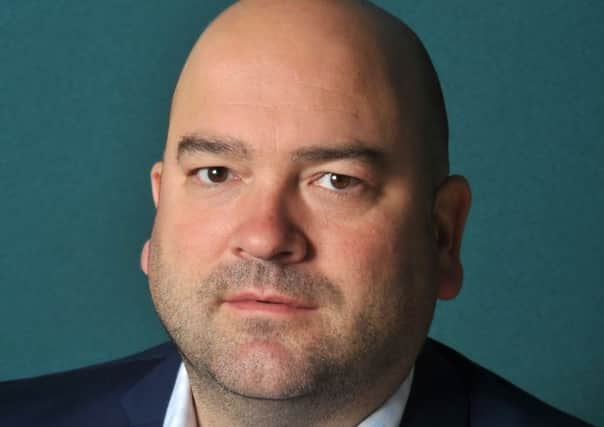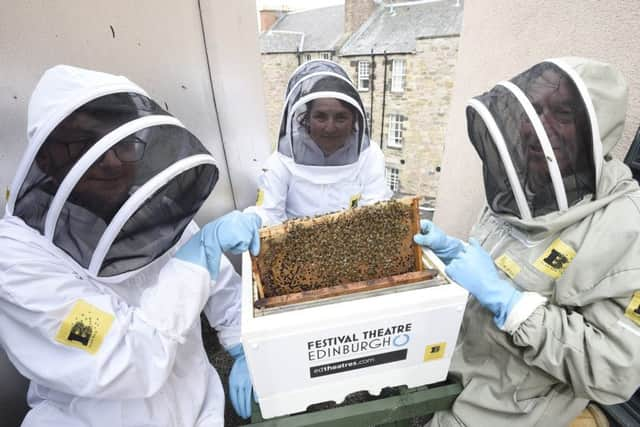Howell Davies: Waste not, want not, as companies work towards converting trash to treasure


When she was sailing single-handed around the globe, the yachtswoman became acutely aware of self- sufficiency: everything she needed on the 73-day trip had to be carried on her yacht so had to be carefully chosen and used, with little going to waste.
The Ellen MacArthur Foundation aims to “accelerate the transition to a circular economy”, working with business, academia and government to meet its goals.
Advertisement
Hide AdAdvertisement
Hide AdInterface supports the key themes of the Scottish Government’s economic strategy, including promoting environmental sustainability through our own endeavours and those of the businesses we assist by matching them with academic expertise in Scotland’s universities,research institutes and colleges.


One of the core concepts in the circular economy is designing waste out, and many companies we work with have focused their efforts to investigate where this can be converted into something else of value.
Our Sectors Team specifically supports groups of businesses tackle industry-wide environmental issues which could positively impact on many companies.
One company involved in our Food & Drink Environmental Sustainability Group undertook a project with Edinburgh Napier University and made substantial savings both to the environment and their production costs. The company, a major food manufacturer, and the academics undertook a feasibility study looking at recovering hot air from their production line through a novel heat exchange system to reheat their drying process. The company went onto implement the findings and have saved an estimated £800,000 in energy costs.
Meanwhile, academics from the University of Strathclyde, Edinburgh Napier University and the University of Edinburgh have been working with fruit and vegetable growers to tackle an industry-wide challenge of waste plastics in agriculture, as the majority currently goes to landfill.


The project has highlighted an opportunity to process waste agricultural plastics into a polyethylene wax which is used in many industrial applications; plastic additives, lubricants, coatings, printing ink production, cosmetics and candle making to name a few.
Academic input came from chemistry and geoscience research teams but also from experts in supply chains as, with any innovation project, there needs to be commercial viability.
Although the project hasn’t finished yet, one of the key findings is that to make this process a commercial reality on an industrial scale, there is a need for other industries to think differently about their waste plastics and work in collaboration across all industry sectors.
Advertisement
Hide AdAdvertisement
Hide AdPutting waste to good use is also progressing in Fife with vegetable supplier Ivan Wood & Sons’ spin-off company Peel Tech Ltd.
It makes a filtration system designed to catch waste starch produced by food processing outlets which include the UK’s 10,500 fish and chip shops.
New legislation banning starch from public drains prompted Malcolm Wood to work with academics at Abertay University on his “eureka-moment” idea to develop a filter product.
The waste starch has been turned into a vegetable stock product with further applications currently being developed.
Aquaculture has its fair share of green stories as well – particularly when you think of Integrated Multitrophic Aquaculture, where some fish farms are using the waste from the cages to help grow shellfish and seaweed on nearby lines which feed off the nutrients in the water.
I particularly like an example from FishFrom, a company which has set up a prawn farm in Fife. They have been working with Scotland’s Rural College (SRUC) to retrofit a recirculation unit which allows the water to be recycled.
The water is cleaned through a number of processes including filtration, UV lighting and a filter which retains a species of worm which feeds on the waste. These worms can then be used as an alternative protein source in fish feed.
We have also worked closely with many businesses founded on green principles, such as Plan Bee, a beehive management company and producer of hive products.
Advertisement
Hide AdAdvertisement
Hide AdFounder Warren Bader wanted to test the nutritional value and antiseptic qualities of Scottish honey compared with Manuka honey, and so Interface helped find him an academic match at the University of Glasgow.
Plan Bee have recently installed a hive on the roof of the Festival Theatre, which adjoins Interface’s offices. While the bees above are busy cross pollinating the flowers, we will be working very hard to cross pollinate these ideas and technologies to other sectors to do our bit for the circular economy.
Howell Davies, sector engagement project manager, Interface